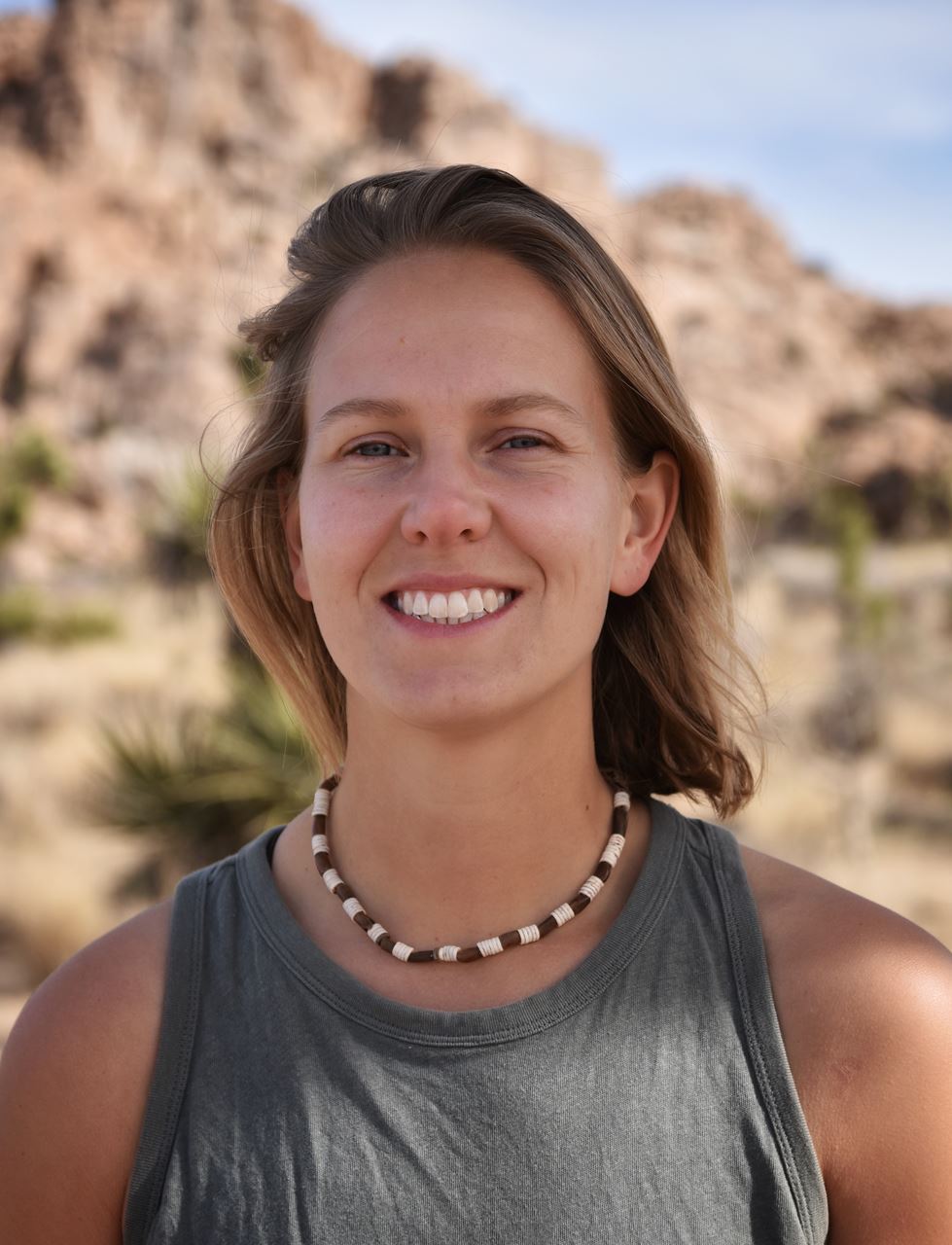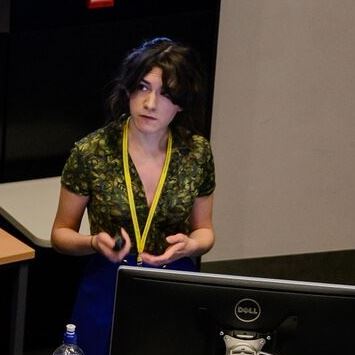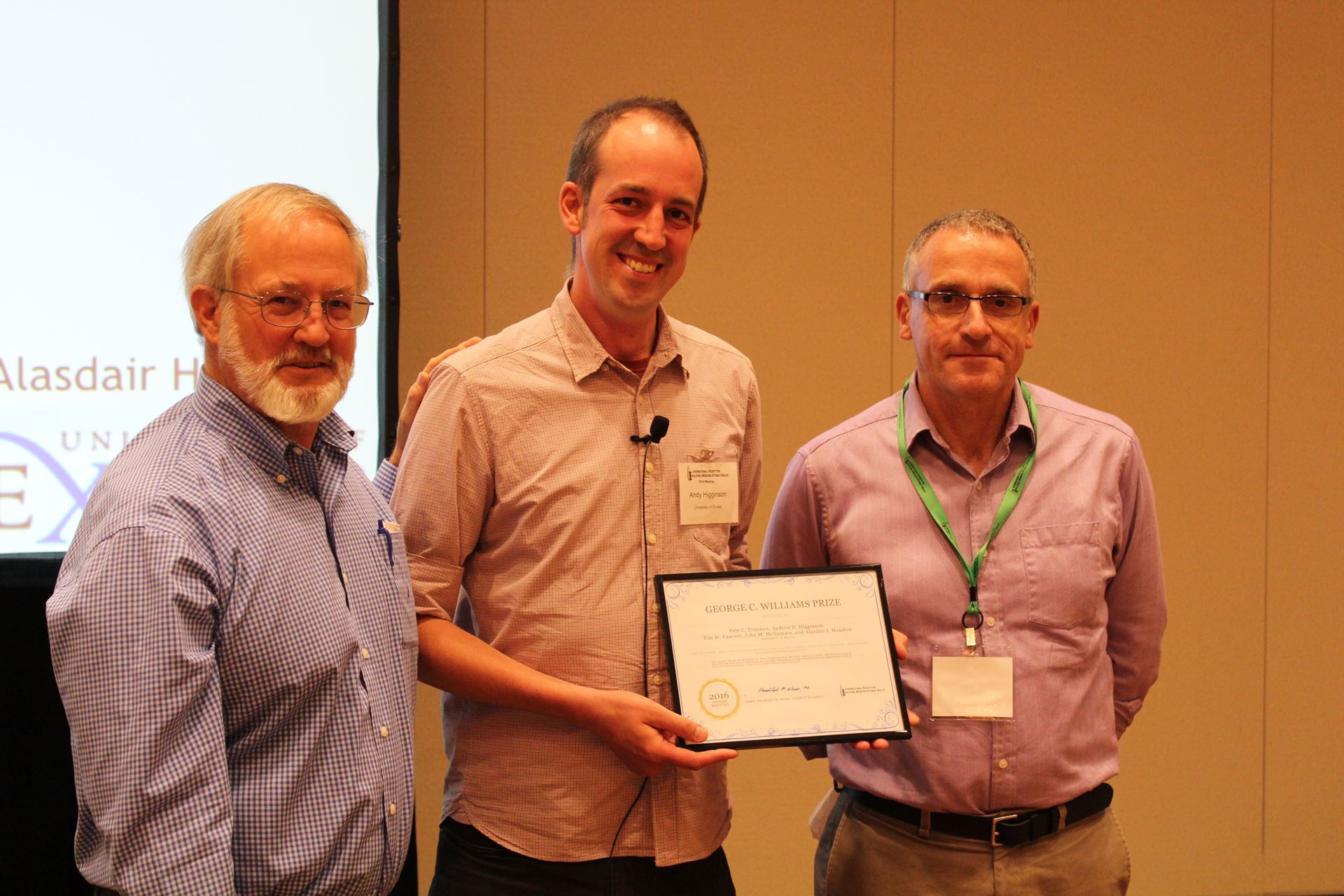
The George C. Williams Prize of $1,000 is awarded each year to the first author of the most significant article published in the Society’s flagship journal, Evolution, Medicine and Public Health. Oxford University Press publishes the journal open access. Cynthia Beall is the editor. All articles published each year will be automatically considered for the Prize. The Prize is made possible by donations from Doris Williams, Randolph Nesse, and other supporters of Evolution Medicine, & Public Health
The Prize recognizes the contributions of George C Williams to evolutionary medicine, and aims to encourage and highlight important research in this growing field. In a seminal 1957 paper, Williams initiated work on several problems central to medicine, including an evolutionary theory of aging and life history traits including menopause. He did important work on the problem of why sex exists. Perhaps his most lasting contribution is his 1966 book Adaptation and Natural Selection, a critique of group selection that transformed how biologists think about the evolution of sociality. In the 1990’s he collaborated with Randolph Nesse on a series of papers and a book that inspired much ongoing work on how evolutionary biology can help us understand disease and improve human health.
George C. Williams Prize Winners

2025 for the best two articles published in Evolution, Medicine, and Public Health in 2024
Host-gut microbiota interactions during pregnancy, Evol Med Public Health. Katherine R Amato et al. 2024 Jan 6;12(1):7-23. doi: 10.1093/emph/eoae001.
First author Katherine R. Amato, Department of Anthropology, Northwestern University, Evanston, IL, USA, will present the work at ISEMPH2025.
Warmest thanks to the Editor, Vaughn Cooper and the Prize Committee, as well as to donors who make the Prize possible.

2024 for the best two articles published in Evolution, Medicine, and Public Health in 2023
1. Biomarkers or biotargets? Using competition to lure cancer cells into evolutionary traps, by Anuraag Bukkuri, Frederick R Adler. Evolution, Medicine, and Public Health, Volume 11, Issue 1, 2023, Pages 264–276, https://doi.org/10.1093/emph/eoad017 .
First author Anuraag Bukkuri will present the work at the ISEMPH annual meeting in Durham, UK, 6-9 August 2024.

2. Signalling need for care: a neglected functional role of medical treatment, by Mícheál de Barra, Kawthar Hakimy, Marijn de Bruin, Evolution, Medicine, and Public Health, Volume 11, Issue 1, 2023, Pages 363–378, https://doi.org/10.1093/emph/eoad024.
First author Mícheál de Barra will present the work at the ISEMPH annual meeting in Durham, UK, 6-9 August 2024.
Warmest thanks to the Editor, Cynthia Beall, and the Prize Committee: Bernhard Crespi (chair), Joe Alcock, Michelle Blyth, Manus Patten, and to donors who make the Prize possible.
 2023 for the best article published in Evolution, Medicine, and Public Health in 2022
2023 for the best article published in Evolution, Medicine, and Public Health in 2022
Evolved resistance to a novel cationic peptide antibiotic requires high mutation supply byt Santos-Lopez, A., Fritz, M. J., Lombardo, J. B., Burr, A. H. P., Heinrich, V. A., Marshall, C. W., & Cooper, V. S. (2022). Evolution, Medicine, and Public Health, 10(1), 266–276. https://doi.org/10.1093/emph/eoac022
First authors Alfonso Santos and Melissa Fritz will present the work at the ISEMPH annual meeting in Irvine, California, 14-17 August 2023.

Warmest thanks to the Editor, Cynthia Beall, and the Prize Committee: Sylvia Cremer (chair), Bridget Alex, and Roderich Römhild and to donors who make the Prize possible.
 2022 for the best article published in Evolution, Medicine, and Public Health in 2021
2022 for the best article published in Evolution, Medicine, and Public Health in 2021
Evolutionary selection of alleles in the melanophilin gene that impacts on prostate organ function and cancer risk, by Ermini, Luca, Jeffrey C Francis, Gabriel S Rosa, Alexandra J Rose, Jian Ning, Mel Greaves, and Amanda Swain, all from The Institute of Cancer Research in London.
First author Luca Ermini, pictured left, will present the work in a plenary session at ISEMPH 2022.
The Prize Committee also recognized three other articles as finalists.
- O’Brien, Siobhán, Michael Baumgartner, and Alex R Hall. 2021. “Species Interactions Drive the Spread of Ampicillin Resistance in Human-Associated Gut Microbiota.” Evolution, Medicine, and Public Health 9 (1): 256–66.
- Thomas, Misty D, Akamu J Ewunkem, Sada Boyd, Danielle K Williams, Adiya Moore, Kristen L Rhinehardt, Emma Van Beveren, et al. 2021. “https://doi.org/10.1093/emph/eoaa051Too Much of a Good Thing: Adaption to Iron (II) Intoxication in Escherichia Coli.” Evolution, Medicine, and Public Health 9 (1): 53–67.
- Thompson González, Nicole, Zarin Machanda, Emily Otali, Martin N Muller, Drew K Enigk, Richard Wrangham, and Melissa Emery Thompson. 2021. “Age-Related Change in Adult Chimpanzee Social Network Integration.” Evolution, Medicine, and Public Health 9 (1): 448–59.
The Prize Committee included Konstantinos Voskarides (chair), Eric Shattuck, and Jessica Hoffman,
"Interpreting polygenic scores, polygenic adaptation, and human phenotypic differences"
by Noah A. Rosenberg; Michael D Edge; Jonathan K Pritchard; Marcus W Feldman
Stanford University
"Is antagonistic pleiotropy ubiquitous in aging biology?"
by Stephen N Austad and Jessica M. Hoffman
University of Alabama
“Time from pre-eclampsia diagnosis to delivery affects future health prospects of children” by Birgitte Hollegaard; Jacob A. Lykke; Jacobus J. Boomsma University of Copenhagen |
 2021
2021  2020
2020 2019
2019

 2016
2016